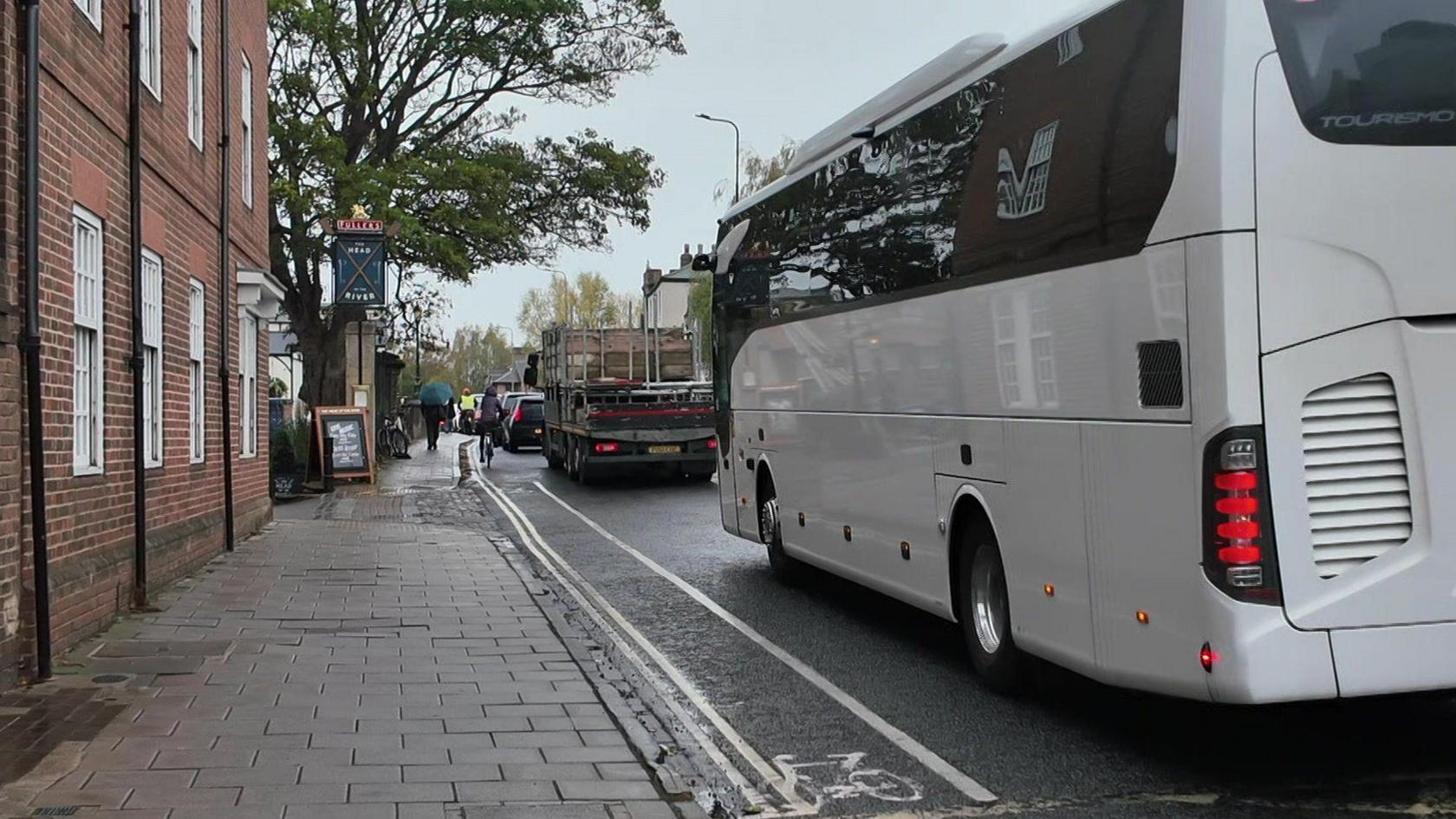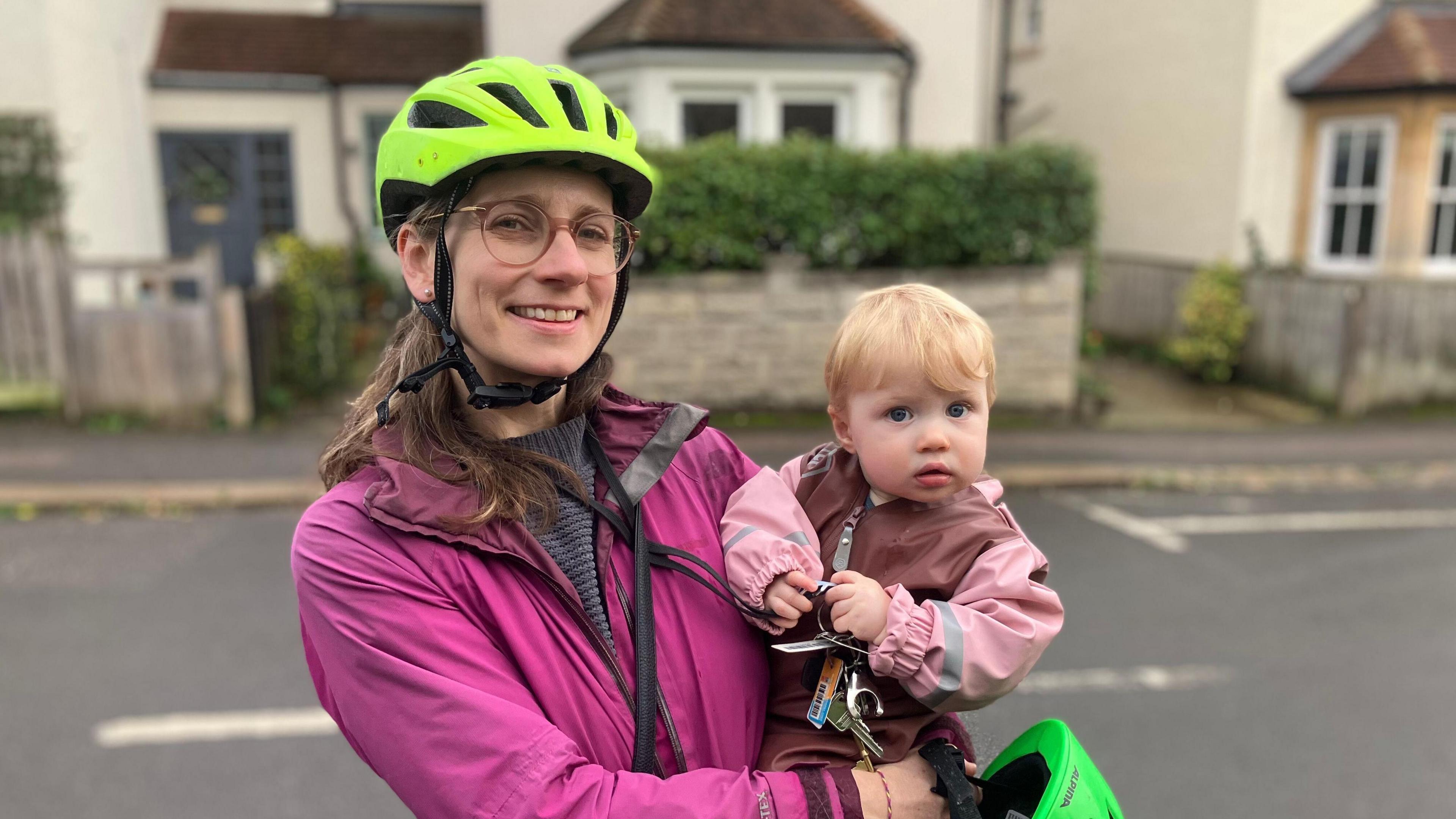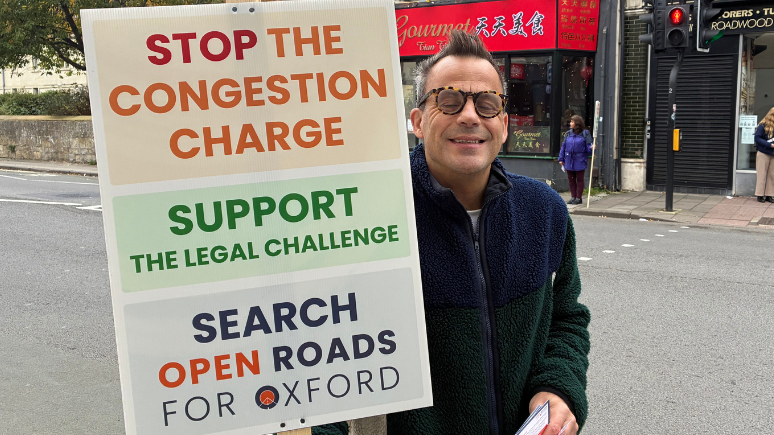What is the solution to Oxford's traffic woes?

Ever wished you could fly over a traffic jam? That could soon be a reality in Oxfordshire with new electric air taxis.
- Published
In a medieval city built on flood plains, especially one with big growth plans, you might say traffic jams are inevitable.
Oxford is a place where there are big ideas - it is key to the government's flagship OxCam corridor - but a finite amount of space.
So how do we solve the city's congestion problem?
Leaders have flirted with trams, considered a monorail, and even contemplated cable cars.
Now test flights are happening for an "electric air taxi service".
But is it all pie-in-the-sky? Or do we need to think outside the box to beat the queues?

A traffic jam on Abingdon Road in Oxford - one of the city's many pinch points.
Oxfordshire County Council's recent policies have been aimed at getting people to reduce their use of private cars.
But things like the Low Traffic Neighbourhoods and the new congestion charge have been deeply unpopular with some.
Critics have said the authority is "anti-car" and is waging a "war on motorists" - with those least able to afford to pay hit the hardest.
The Liberal Democrat councillor in charge of highways, Andrew Gant, believes policies are needed to cut congestion for alternatives like bus services to run effectively.
He said: "I drive a car. I would say to a motorist, nobody is helped by being stuck in a traffic jam on Abingdon Road trying to get to the cheap car parking at the Westgate.
"That doesn't help the motorists, that doesn't help businesses in Oxford, it doesn't help anybody."
More stories from the South of England
Union supports £600m history theme park plan
- Published31 October
Congestion charge signs to be amended after error
- Published30 October
Forgotten artefacts found during theatre revamp
- Published30 October
And plenty of families have proved it is possible to live car free in Oxford.
Amy Beckenstrom has not owned a car since moving to the city 20 years ago - and now has two young children.
She mostly travels by bike, but will use trains or hire a car if needed.
She said: "You just don't have to think about a car.
"I would imagine that you have to think about your maintenance and MOTs and parking and we don't have to think about any of that."

Amy Beckenstrom has lived car-free in the city for 20 years
Of course life on two wheels is not for everyone, and a city that wants to reduce car use needs to provide cheap, convenient and reliable alternatives.
The Campaign for Better Transport advocates for cities to consider tram networks, pointing to research showing that they are more likely than buses to entice people away from car use.
Head of Campaigns Michael Solomon Williams said: "What's advantageous about trams is that they run on segregated tracks.
"Congestion doesn't affect them in the same way that buses are affected by congestion.
"They're high capacity, much higher capacity than many buses and indeed they're fully accessible."
But, with councils strapped for cash, Mr Gant is more inclined to think that buses are the solution for Oxford.
He said: "[Trams are] hugely expensive, and also you can't move them... a bus route can be changed.
"Our job is to provide the conditions, the circumstances in which buses can move better, and then people will choose to use them."

Ankit Dass from Skyports says they aim to make electric air taxis available - in the same price range as a regular taxi.
A more futuristic method of bypassing congestion is being tried out in Bicester.
Test flights of electric air taxis are being planned for next year from a newly built "vertiport".
The aim is to build a network for the service and eventually have prices on a par with regular taxis.
Chief technology officer for Skyports Ankit Dass said: "I don't think it's a solution that it will completely replace the congestion but it helps to address the congestion problem.
"Looking at the numbers, how the traffic condition is growing, having this means of transport at the right price point will definitely help with that."
Get in touch
Do you have a story BBC Oxfordshire should cover?
You can follow BBC Oxfordshire on Facebook, external, X (Twitter), external, or Instagram, external.
- Published1 October

- Published29 October

- Published29 October
